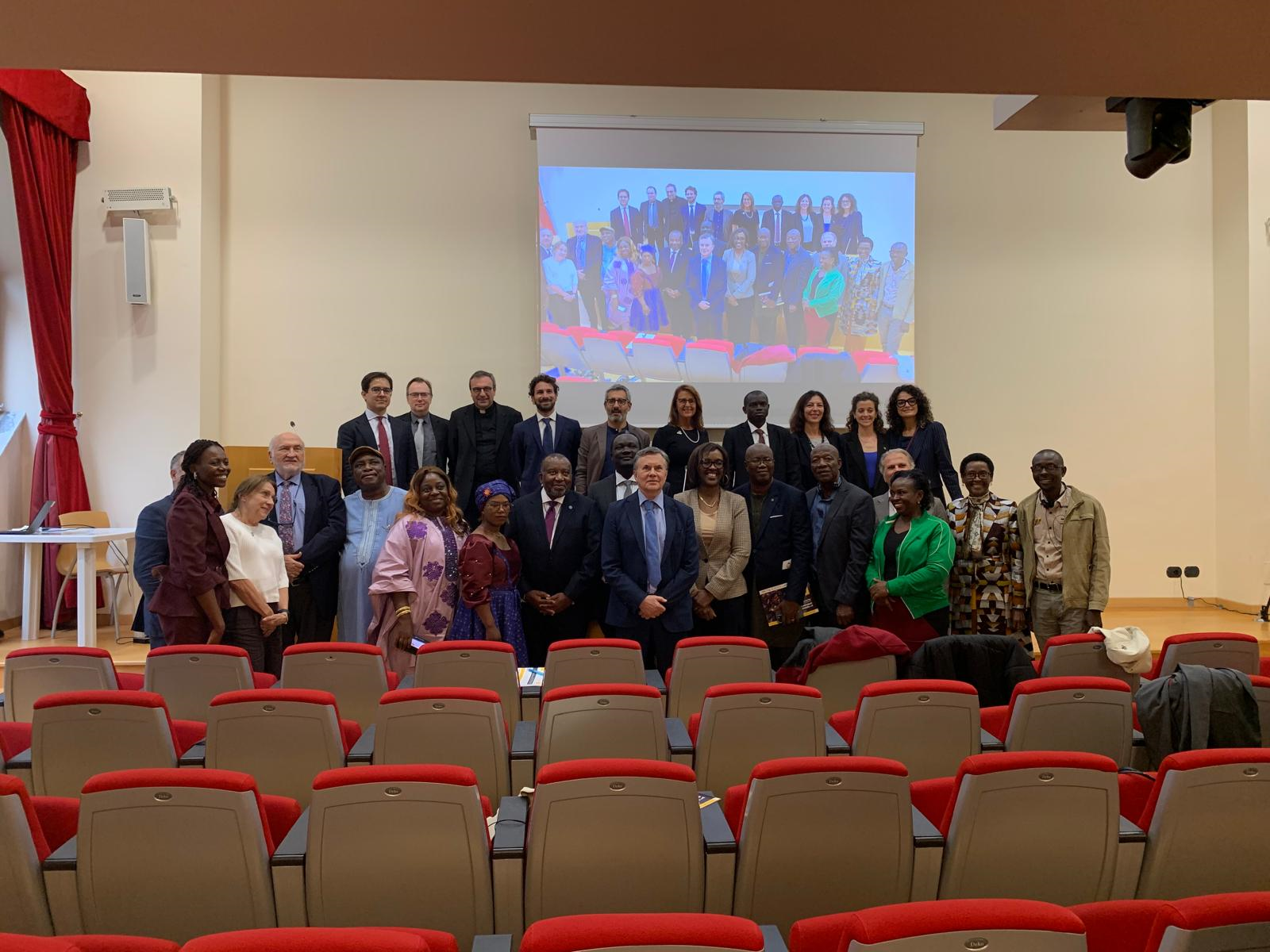The dialogue called on governments to develop policies that promote a results-oriented, technologically neutral and evidence-based approach to agricultural solutions.

Rome, October 9, 2024 (Bayer/IICA) – Smallholder farmers in Africa benefit from regenerative agriculture through a diverse set of practices, but need better access to technology and financing.
This was the key outcome of the second African Farmers Roundtable, co-organized in Rome by the Pontifical Academy for Life, Bayer, the Global Farmers Network, the World Farmers Organization, the African Agricultural Technology Foundation (AATF) and the Inter-American Institute for Cooperation on Agriculture (IICA).
During the dialogue, the Director General of IICA, Manuel Otero, highlighted the enormous contributions that the successful experiences of Latin America and the Caribbean can make for Africa to increase its productivity, recover degraded soils and generate jobs and income for producers, strengthening continental and global food security, within a framework of sustainability.
“The future belongs to Africa, Latin America and the Caribbean, which are spaces that have to help each other and have a long way to go in agricultural development and innovation. Our region, Latin America and the Caribbean, is the guarantor of world food security and has a great responsibility because it contains almost all the natural resources or a good part of those that humanity must conserve to outline an idea of new models of sustainable development, so it has much to contribute to Africa, where IICA already has several collaboration agreements and wants to create more,” said Otero.
At the debate, farmers from Côte d’Ivoire, Lesotho, Mali, Nigeria, Kenya, Rwanda, South Africa, Uganda and Zambia discussed with international policymakers and other partners the importance of policies that enable smallholder farmers to implement regenerative agricultural practices more broadly and improve food security in Africa.
They called on governments to develop policies that promote a results-oriented, technology-neutral and evidence-based approach to agricultural solutions.
Coupling this with improved farmer training and support for regenerative farming practices could be a major step towards greater productivity while benefiting the environment. This can be achieved through a diverse set of practices and technologies that combine modern and traditional tools, all tailored to the specific needs of farmers. More importantly, farmers say there is no one-size-fits-all solution to this endeavor.
“The vast majority of Africa’s food is produced by smallholder farmers. It’s important to listen to them and learn about the big challenges they face in light of climate change,” said Debra Mallowah, Africa region manager for Bayer’s Crop Science Division.

“Today we heard how many farmers are contributing to the socio-economic and environmental development of the sub-Saharan region. The private sector, together with governments and policy makers, international organizations, research institutions and civil society must develop infrastructure, build capacity, conduct research and invest in innovations to create an enabling environment for these farmers to thrive and ultimately benefit us all.”
Elisha Lewanika, a Zambian farmer, stressed the importance of regenerative agriculture and the need for proper farming techniques to improve soil health and crop yields.
For Matente Kethisa from Lesotho, soil health and conservation are key to meeting the challenges of climate change: “In my community of Nikito, soil is the basis of agriculture. We focus on preserving and improving its quality through crop rotation, mulching, no-till farming and nutrient management.”
Amadou Sidibe from Mali highlighted the advantages of greenhouse technology in mitigating the effects of climate change: “While torrential rains and floods affected many parts of West Africa, our greenhouses were not affected. During dry periods, my greenhouses use 90% of the available water very efficiently, making them a powerful tool for managing agriculture in times of increasingly unpredictable weather.”
Despite the demonstrated benefits of the various approaches, farmers highlighted the barriers they face in accessing the tools they need to fully realize the potential of regenerative agriculture.
Low public and private investment in innovation and development, high upfront costs of newer technologies, limited access to insurance and credit policies, and lack of infrastructure prevent many smallholder farmers from contributing to agriculture’s transition to higher productivity with reduced impact on the environment.
To promote regenerative agriculture, African farmers urged governments to review policies, allowing access to various technologies tailored to farmers’ needs.
Financial institutions should offer low-interest loans, subsidies and insurance, especially for smallholder farmers, encouraging investment in modern technologies and sustainable practices.
According to farmers, expanding education and training through demonstration farms, digital platforms and extension services remains essential.
Agriculture supports more than 50% of Africa’s population and contributes 35% of its GDP, reaching up to 60% in some countries. Despite this, Africa faces increasing food imports and persistent food insecurity due to low productivity, low value added per worker and subsistence farming below efficient scales, with an average farm size of 1.3 hectares. Despite having 65% of the world’s remaining arable land, only 10% is used.
For Bayer, regenerative agriculture is a results-based production model with improving soil health and strengthening resilience at its core as a key objective.
Other main objectives are climate change mitigation, maintaining or restoring biodiversity, water conservation, as well as increasing yields and improving the economic and social well-being of farmers and their communities.
More information:
Institutional Communication Division.
comunicacion.institucional@iica.int











